When it comes to heating your home for the winter, you want to do it…
What is A Heat Pump and How Does It Work?
Home » HVAC Blog Articles » What is A Heat Pump and How Does It Work?
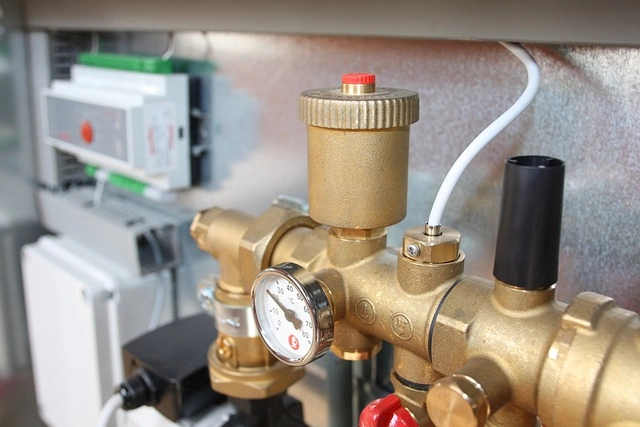
As the seasons change in Raleigh, North Carolina, finding the right HVAC system becomes increasingly important for your comfort and energy efficiency needs. At Bowman Mechanical Services, our heat pump installation experts understand the significance of informed choices when it comes to your heating and cooling solutions.
As a way to inform our customers, we are exploring the world of heat pumps—a versatile and energy-efficient option that can provide both heating and cooling for your home or business. Whether you’re curious about what a heat pump is or considering the differences between a heat pump and other heating solutions, we have everything you need to know to make an informed decision about your HVAC needs.
What is a Heat Pump?
When it comes to Raleigh heating and cooling solutions, you’ve probably heard of furnaces, air conditioners, and even ductless mini-split systems. But what about heat pumps? A heat pump is a unique HVAC system that provides both heating and cooling functions, making it a versatile and energy-efficient choice for maintaining indoor comfort year-round.
At its core, a heat pump operates by transferring heat from one place to another rather than generating heat itself. This means that it can extract warmth from the outside air (even in cold weather) and bring it inside your home during the winter. Conversely, in the summer, it can remove heat from your indoor space and expel it outdoors to keep you cool.
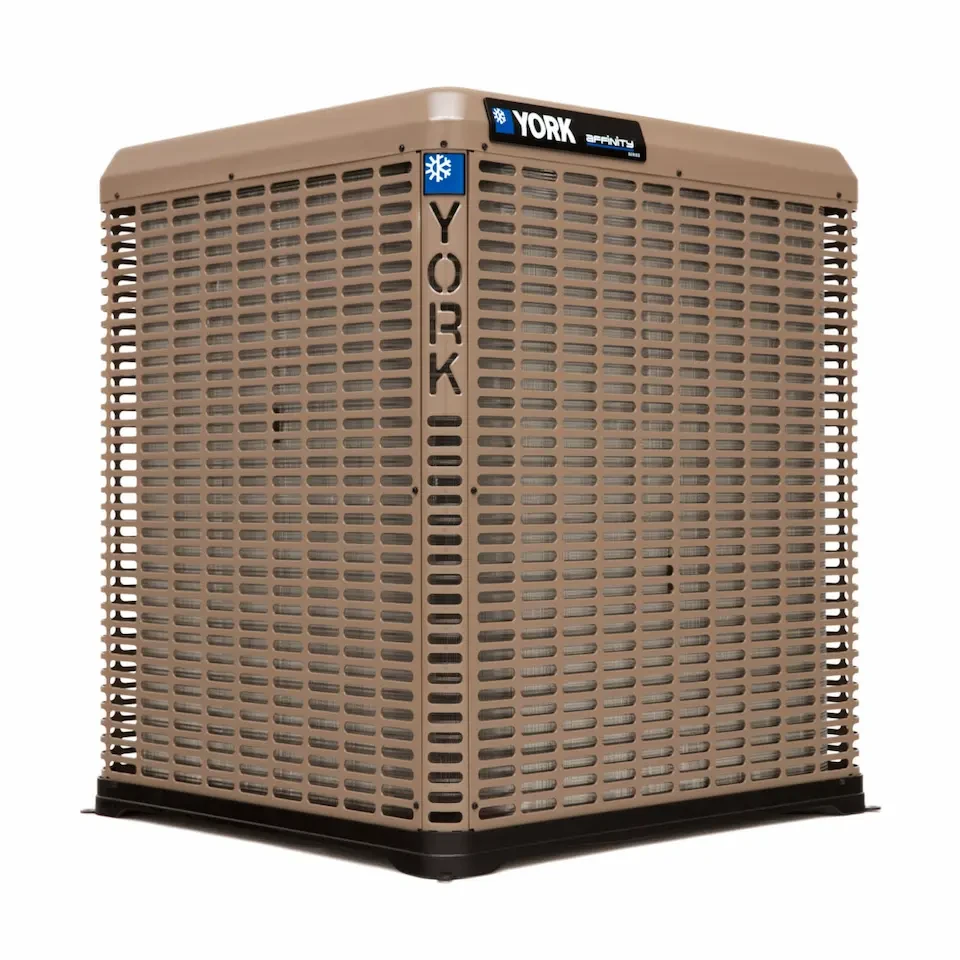
Different Types of Heat Pumps
There are several types of heat pumps available, each with its own unique characteristics and applications.
Air-Source Heat Pumps
An air source heat pump is the most common type of heat pump and works by extracting heat from the outside air. Air-source heat pumps can be split systems, where indoor and outdoor units are connected by refrigerant lines, or packaged systems, where all components are housed in a single unit.
Geothermal Heat Pumps
Geothermal heat pump systems harness the stable temperature of the earth’s ground or a water source (such as a well or pond) to provide heating and cooling. Ground-source heat pumps are highly energy-efficient but require more extensive installation and may be more expensive upfront.

Ductless Mini-Split Heat Pumps
Mini-split heat pumps are a variation of air-source heat pumps. They consist of an outdoor compressor unit connected to one or more indoor air-handling units. These units can be installed without the need for ductwork, making them a flexible and efficient option for heating and cooling individual rooms or zones within your home.
The Versatility of Heat Pumps for Heating and Cooling
One of the most significant advantages of heat pumps is their ability to provide both heating and cooling, making them a year-round solution for indoor comfort. Let’s take a closer look at how their versatility benefits you.
Energy Efficiency
Heat pumps are renowned for their energy efficiency. Because they move heat instead of generating it, they can provide up to three times more heating or cooling energy than the electricity they consume.
Cost Savings
By reducing your reliance on fossil fuels and electricity for heating and cooling, heat pumps can lead to substantial cost savings on your utility bills over time.
Environmental Friendliness
Heat pumps produce fewer greenhouse gas emissions compared to traditional heating and cooling systems, contributing to a greener and more sustainable future.
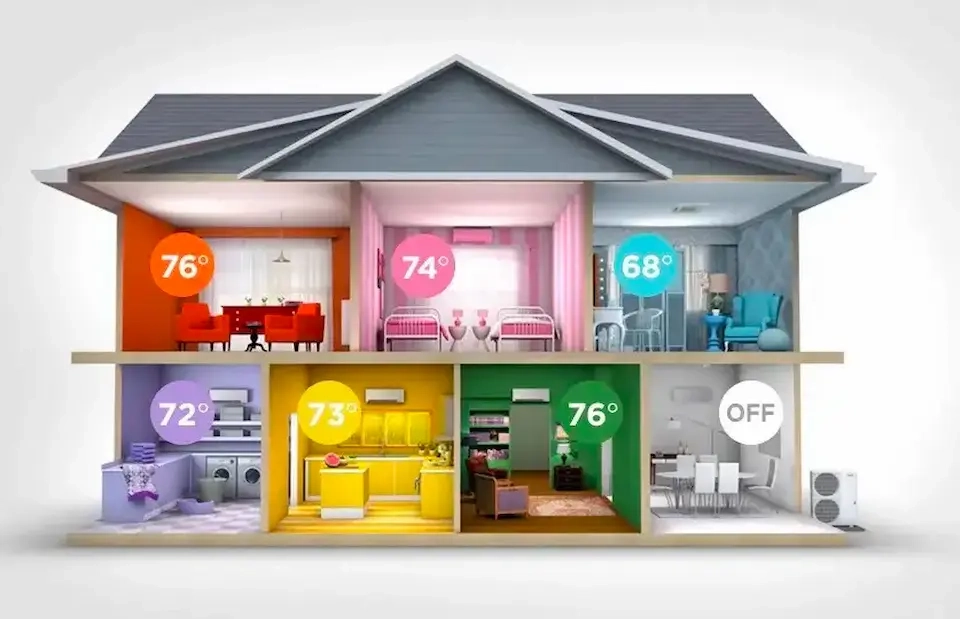
Zoning and Customization
Ductless mini-split heat pumps offer the added advantage of zoning, allowing you to heat or cool specific areas of your home independently, further improving energy efficiency and personal comfort.
How Does a Heat Pump Work?
To understand how a heat pump works, it’s essential to grasp the fundamental principle of heat transfer. Heat naturally flows from areas of higher temperature to areas of lower temperature. Heat pumps exploit this natural tendency by using a refrigerant to move heat from one place to another. Even in cold weather, there is heat energy available in the air, and a heat pump can capture and transfer it into your home.
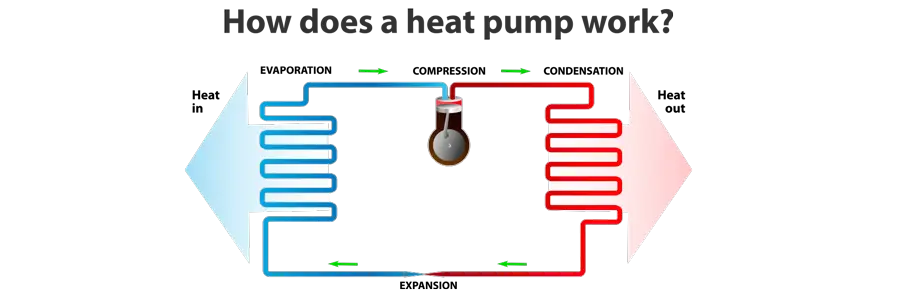
The Refrigeration Cycle in a Heat Pump
At the heart of a heat pump’s operation is the refrigeration cycle, which involves four key processes:
Compression: The cycle begins with the compressor, which pressurizes a low-pressure, low-temperature gaseous refrigerant, causing it to become hot and highly pressurized. This high-pressure gas is then pumped to the next stage.
Condensation: The hot, pressurized gas enters the condenser coil outside your home, where it releases heat to the surrounding air. As it loses heat, the refrigerant changes from a gas to a high-pressure liquid.
Expansion: The high-pressure liquid refrigerant then passes through an expansion valve or metering device, where it undergoes a sudden drop in pressure. This causes the refrigerant to expand and cool rapidly, turning it into a low-pressure, low-temperature mixture of liquid and gas.
Evaporation: The cool refrigerant enters the indoor evaporator coil, where it absorbs heat from the indoor air. This absorption causes the refrigerant to evaporate back into a low-pressure gas, ready to begin the cycle anew.
Key Components of a Heat Pump System
A heat pump system consists of several essential components that work together to facilitate the refrigeration cycle and the transfer of heat.
These components include:
Compressor: The compressor is responsible for pressurizing and circulating the refrigerant. It plays a crucial role in raising the temperature of the refrigerant so that it can release heat in the condenser coil.
Condenser Coil: Located in the outdoor unit of the heat pump, the condenser coil is where the high-pressure, high-temperature refrigerant releases heat to the outside air. This process transforms the refrigerant into a high-pressure liquid.
Evaporator Coil: Positioned indoors, the evaporator coil absorbs heat from the indoor air as the low-pressure refrigerant evaporates within it. This heat transfer process cools the indoor air.
Expansion Valve: The expansion valve or metering device is responsible for reducing the pressure and temperature of the refrigerant, preparing it for the evaporation process in the indoor coil.
Refrigerant in the Heat Pump Process
Refrigerant is the lifeblood of a heat pump, enabling the system to transport heat from one place to another. It has unique properties that allow it to change from a low-pressure gas to a high-pressure liquid and back again at relatively low temperatures, making it ideal for heat pump applications.
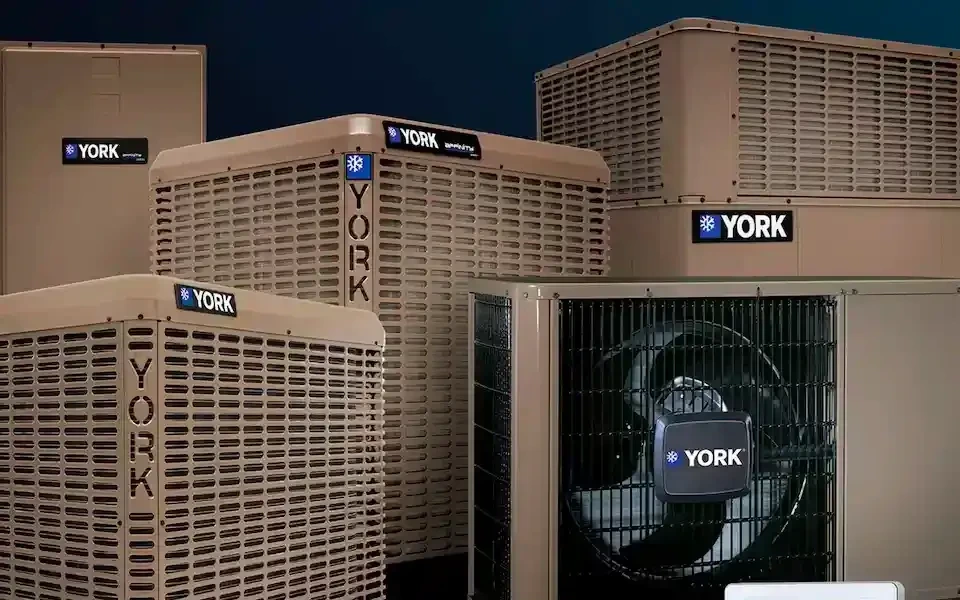
Advantages of Heat Pumps
Heat pumps are not only innovative but also practical HVAC systems that bring a multitude of benefits to homeowners and businesses alike.
Energy Efficiency and Environmental Benefits
One of the most significant advantages of heat pumps is their exceptional energy efficiency and their positive impact on the environment.
Here’s how they contribute:
Reduced Energy Consumption: Heat pumps move heat rather than generate it, making them significantly more energy-efficient than traditional heating and cooling systems like furnaces and air conditioners.
Lower Greenhouse Gas Emissions: Heat pumps produce fewer greenhouse gas emissions because they use electricity to transfer heat rather than burning fossil fuels.
Zoning Capability: Ductless mini-split heat pumps offer zoning capabilities, allowing you to heat or cool specific areas of your home independently. This precise control minimizes energy wastage in unoccupied rooms.
Versatility and Year-Round Comfort
Heat pumps are known for their versatility, providing both heating and cooling functions in a single system.
Here’s how their adaptability benefits you:
Year-Round Comfort: Heat pumps can efficiently heat your home during the winter and cool it during the summer, ensuring comfort in all seasons.
Consistent Temperature: Heat pumps provide a more consistent indoor temperature compared to some other heating methods. There are no sudden temperature fluctuations, creating a more comfortable living or working environment.
All-in-One Solution: With a heat pump, you won’t need separate heating and cooling systems. This simplifies your HVAC setup and reduces maintenance requirements.
Cost Savings in the Long Run
While the initial cost of installing a heat pump may be slightly higher than traditional systems, the long-term cost savings more than makeup for it:
Lower Utility Bills: Heat pumps are highly energy-efficient, which translates into lower monthly utility bills. Over time, the energy savings can offset the initial installation costs.
Reduced Maintenance: Heat pumps generally require less maintenance compared to traditional systems. They have fewer moving parts, reducing the likelihood of breakdowns and repair costs.
Extended Lifespan: Heat pumps are designed for durability, and with proper maintenance, they can last for many years, providing reliable heating and cooling throughout their lifespan.
Contact Bowman for Raleigh Heat Pump Installation
If you’re ready to experience the benefits of a heat pump system installed by experts who truly care about your comfort and satisfaction, look no further than Bowman Mechanical Services. Our team of dedicated Raleigh HVAC professionals is here to serve your home’s heating and cooling needs.
With our expertise in heat pump installation, maintenance, and repair, you can trust us to provide you with top-quality service and reliable solutions. We are committed to exceeding your expectations, ensuring that your home or business remains comfortable and energy-efficient year-round.
Contact us today by calling 919-772-2759 or filling out the form below to get started.
Related Posts
- How Does A Heat Pump Work In Winter?
- Heat Pump Replacement Cost In 2023
A heat pump is often looked at as an eco-friendly way to heat and cool…
- How Does A Geothermal Heat Pump Work?
Learn how geothermal heating and cooling systems are an energy-efficient, sustainable, low-maintenance way to keep…
